IN THIS ISSUE 🪧
🔦 Spotlight: South Asian creatives balancing family expectations and identity; insights on guilt vs. shame.
🤝 Community: Toronto and Mississauga Fringe support IBPOC artists (Rachel Kennedy, Jasmine Sawant).
📅 Events: Pop Up Shorts (Nov 19), Weesageechak (Nov 21–30), MISAFF (Nov 24–30), and RPFF free (Nov 27–30)
SPOTLIGHT 💡🔦
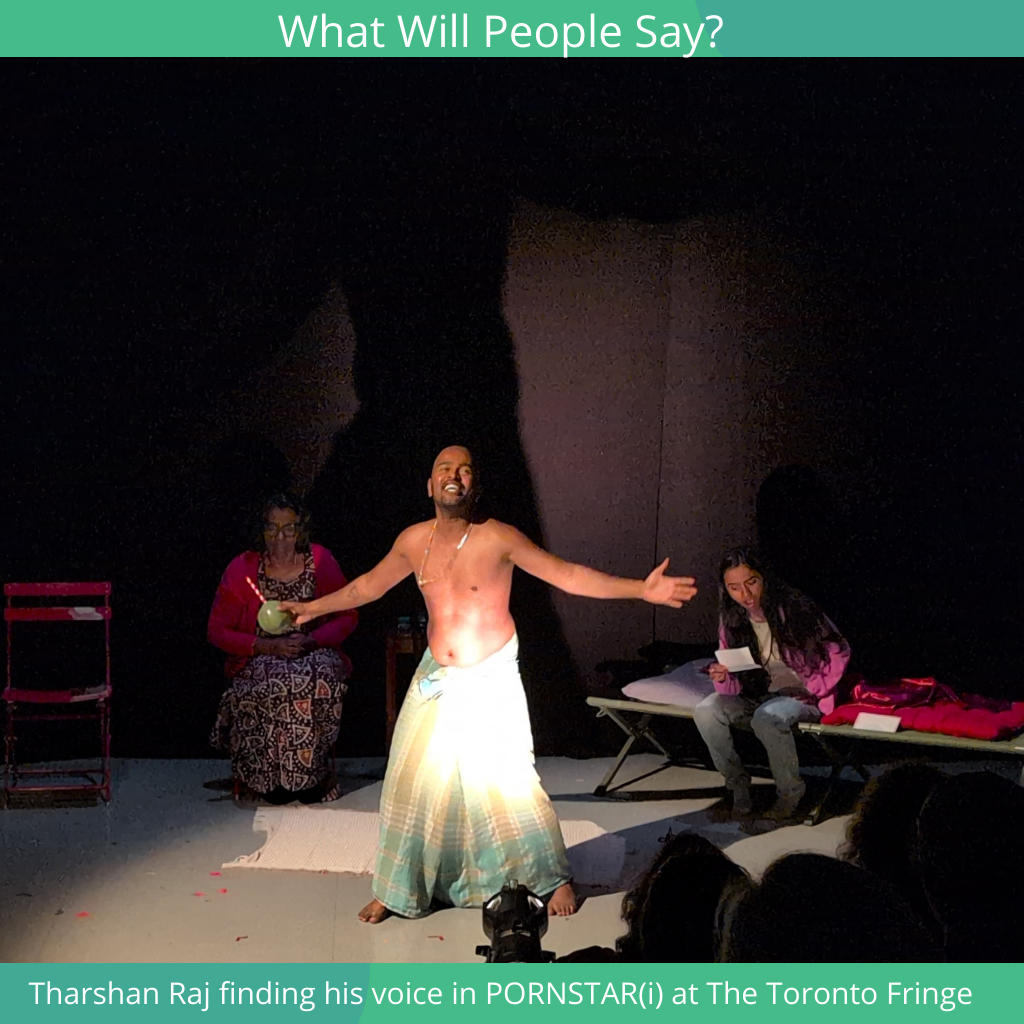
What Will People Say? Why Being a South Asian Creator Is Hard
Today, Tharshan Raj is a successful actor-writer-producer, but his journey began far from the stage. He immigrated with his family to North York in Toronto from Sri Lanka. Acting and performing for others is how he learned to speak English, and fit in.
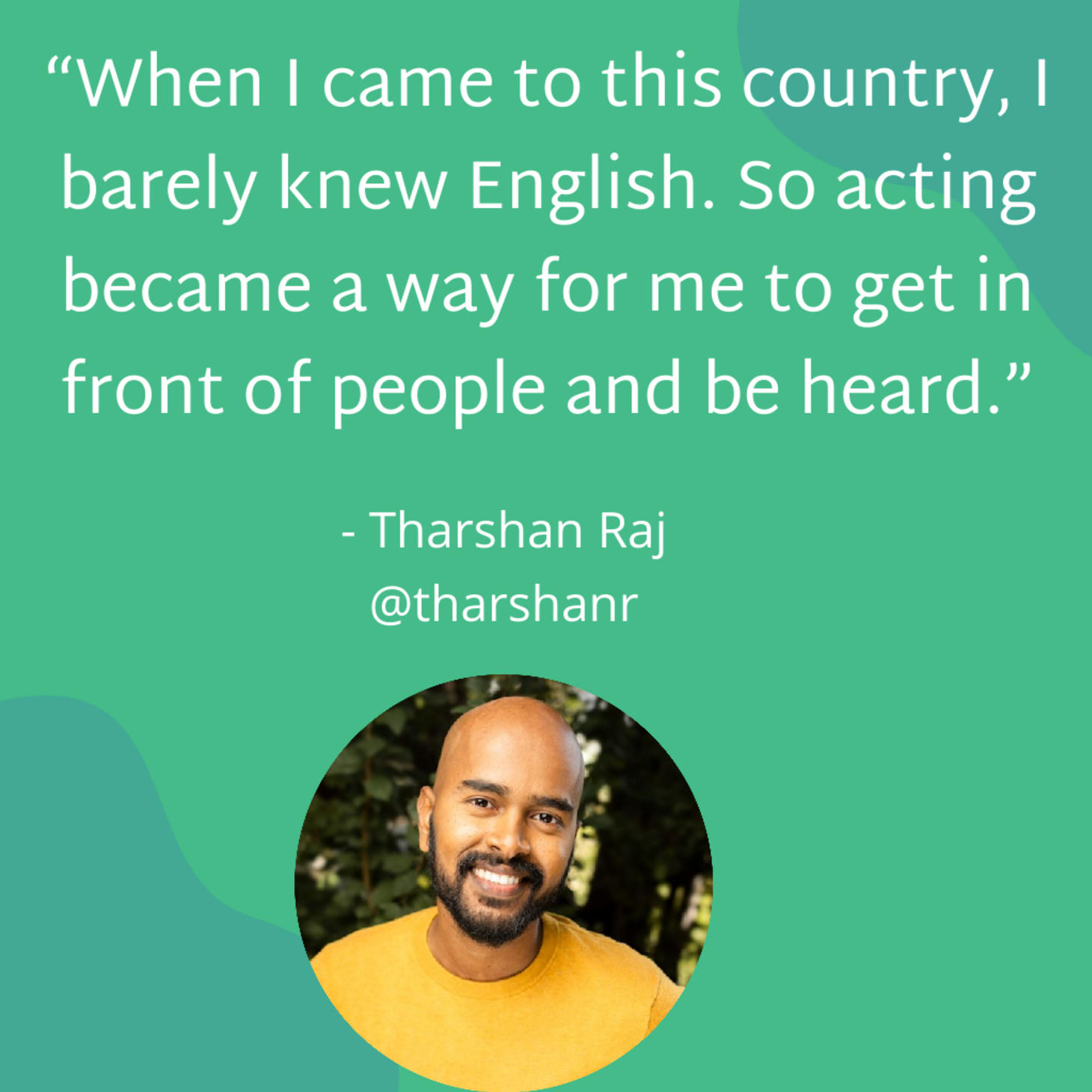
"When I came to this country, I barely knew English. So acting became a way for me to get in front of people and be heard."
Dreams vs. Family Expectations
Like so many immigrant kids, Raj’s dream collided with family expectations. When he told his mother he wanted to pursue acting, she made him feel guilty.
”Do you want to go and dance on the street, begging for money? I won’t say anything to you, but just think about what your uncles and aunties, what our family and friends, will say.”
"What Will People Say?" — The Unspoken Rule
In many South Asian families, “What will people say?” isn't just a question that children hear. It's a part of who you are and need to be while growing up from a young age.
From what you wear, to your career choice, to who you date and marry, the family and community reputation overrides what the children want. Important life decisions are made by the family collectively around the dinner table, not individually. In Canada, the safe, secure, and stable path is often emphasized—something many immigrants may not have had access to back home. Careers like doctor, engineer, lawyer, teacher, or accountant are widely respected and seen as prestigious, while pursuing the arts or other creative fields is often viewed as foolish or naive.
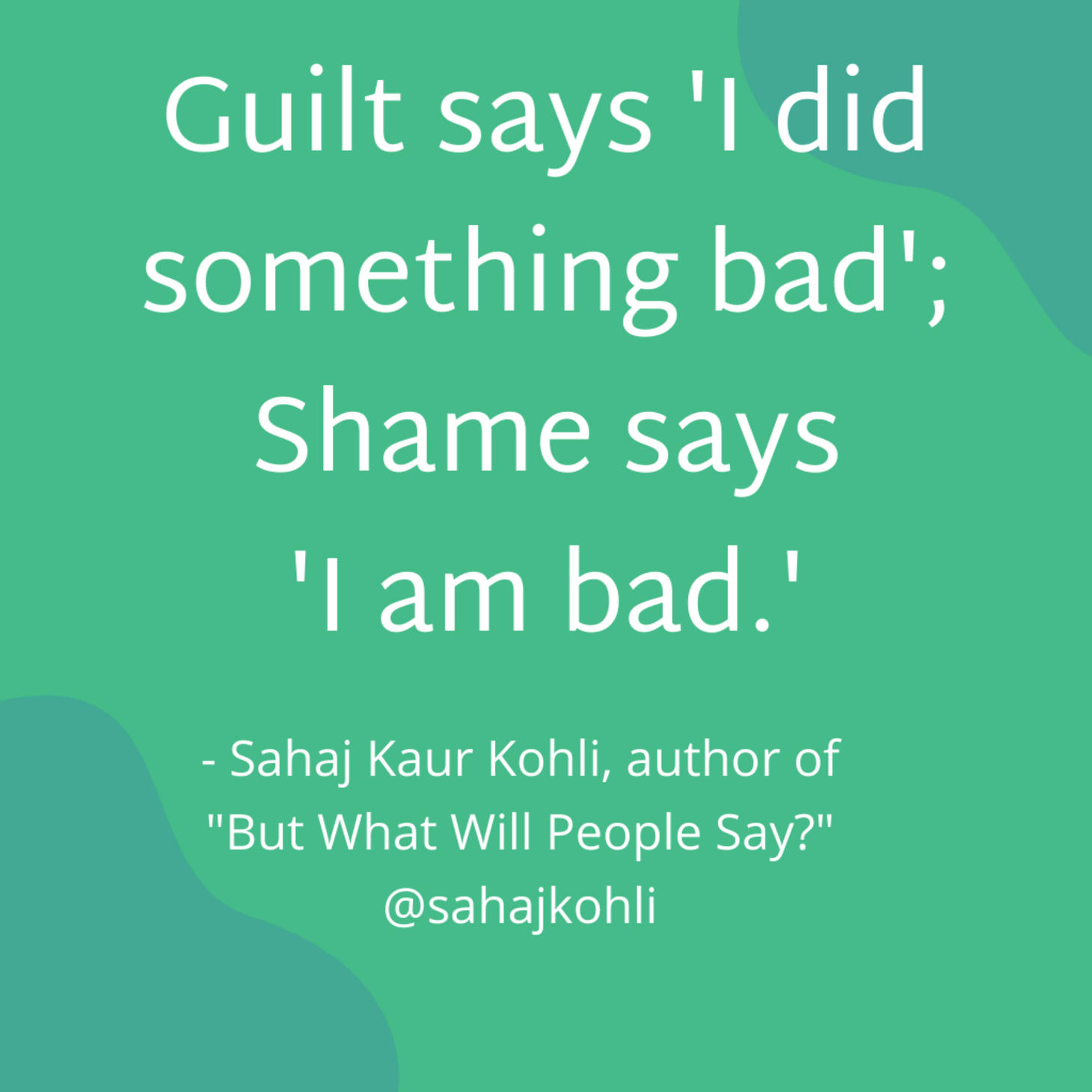
Following the "Right" Way: Obedience and Duty
Sahaj Kaur Kohli, author of "But What Will People Say?" and founder of Brown Girl Therapy, describes the unspoken rules in South Asian families:
”There is a 'right' way, a 'right' time, and a 'right' order when it comes to living life. We are expected to obey our parents and elders, listen to their advice, and follow the paths they lay out for us..."
Guilt vs. Shame: The Emotional Costs:
Obedience and duty to family isn’t only about respecting one's elders. It’s also about love and protecting your children from a world that isn’t always kind to outsiders and immigrants. When the kids push back, shame and guilt are used to pull them back and conform. Kohli explains the difference and why shame is worse than guilt:
”Guilt says ‘I did something bad’. Shame says ‘I am bad.’”
Guilt is about behaviours and actions, and is redeeming because we have the ability to change, and repair it and move forward. Shame damages a person’s sense of self and makes the family want to hide and withdraw from the community. The 'bad' action taken by a family member negatively impacts the family's reputation.
Straddling Two Worlds: Bicultural Identity
This struggle that is seen so often in immigrant families is what psychologists call “bicultural identity straddling”. It's about living with one foot in two worlds. As Kohli puts it:
”Many of us are walking a tightrope, trying to steady ourselves so as not to get devoured by the abyss below.”
It's why so many immigrant kids feel like they’re acting—different at home, and different with friends. For South Asians, it often means feeling 'not Indian enough' or 'not Canadian enough'.
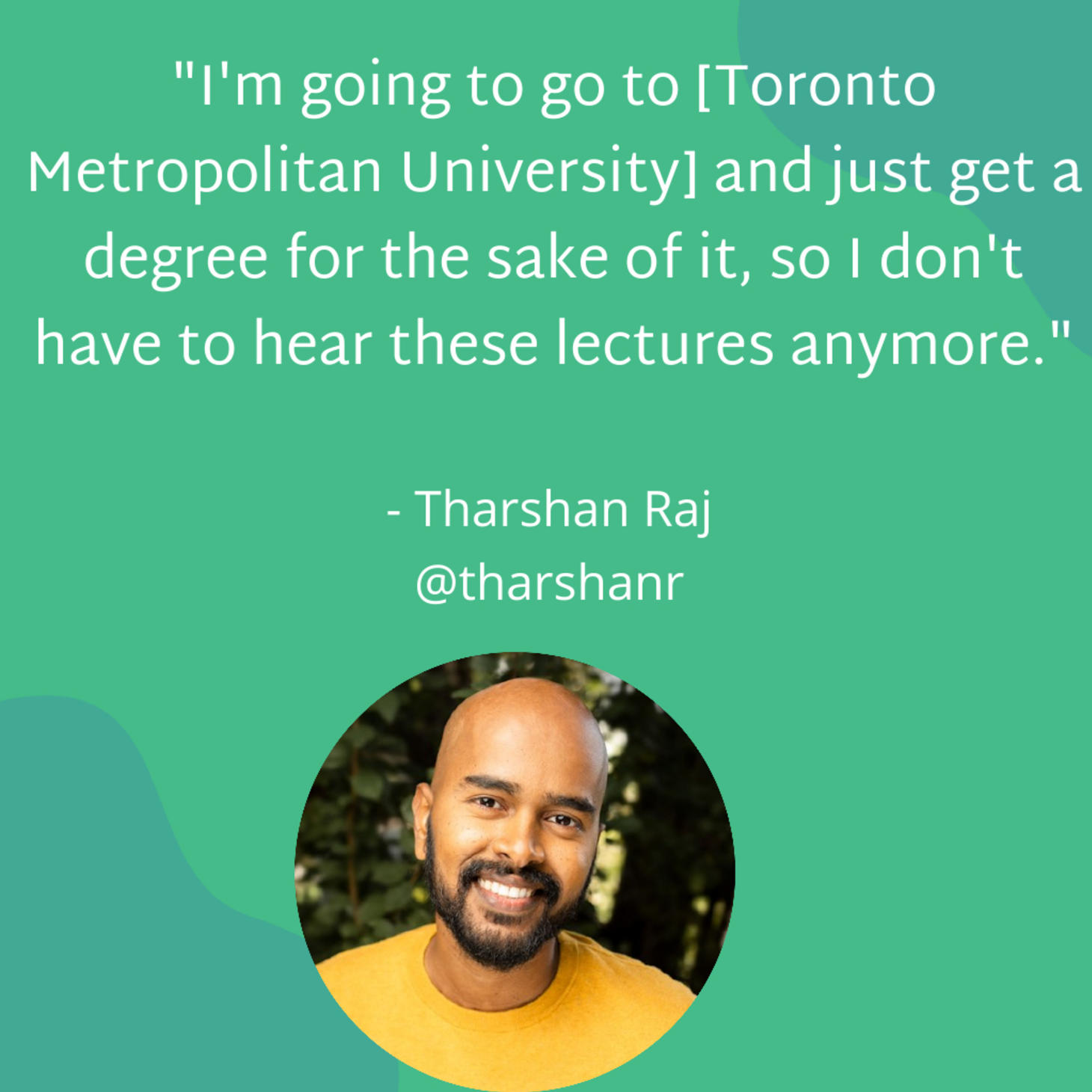
Toronto Fringe debut: Sri Lankan cast tackles family pressure and stigma
This pressure from straddling two cultures got real recently for a group of Tamil Sri Lankan Canadian actors from the Toronto area. Tharshan Raj and his childhood friend, Mayurathan (Mayo) Thevathas, co-created a bold new play called PORNSTAR(i). It got selected and had its debut at the 2025 Toronto Fringe Festival. As soon as they finalized an all-Sri Lankan cast, everyone faced the same questions about how their children’s choices would affect the family and community reputation. Concerned family members asked,
“Is it the right decision to act in a play called ‘Pornstar’?” and of course, “What will people say?”
PORNSTAR(i) is a drama-comedy that flips the script: a traditional South Asian family discovers their son’s secret career in adult film. At its core, the play uses comedy scenes and family confrontations to talk about the suffocating pressure to follow a “respectable” career path, and the double lives children of immigrants end up living. One life is focused on self-expression, the other on family and community expectations.
Raj, who plays the main character Ari, knows this struggle first-hand. He didn’t study acting. Instead he rationalized a more “acceptable” path:
“I’m not going to get any support from my family if I pursue acting... I’ll do what they want—get a degree, find a steady job—and I’ll chase my passion on the side. I’ll keep my head down, make them proud on paper, and quietly keep working toward what I really want.”
Raj started out in criminology at the University of Guelph-Humber but dropped out almost immediately because he didn't like it. What followed was a constant stream of lectures about shame and family honour from his parents and uncles. Raj remembers his frustration:
"I'm going to go to [Toronto Metropolitan University] and just get a degree for the sake of it, so I don't have to hear these lectures anymore. So I chose public administration, got the degree, and then I was like, okay, now I can just do whatever I want."
Before graduating, Raj launched a YouTube channel, Basement Reels with fellow creative, Krusan Siva. They create comedy sketches and personal stories that over time gained millions of views and nearly 100,000 subscribers. While working various precarious jobs to pay the bills, he also produced short films for festivals and collaborated with other South Asian artists in Toronto, quietly building his creative career on the side. More recently, Raj studied at Second City and Toronto Acting Studios.
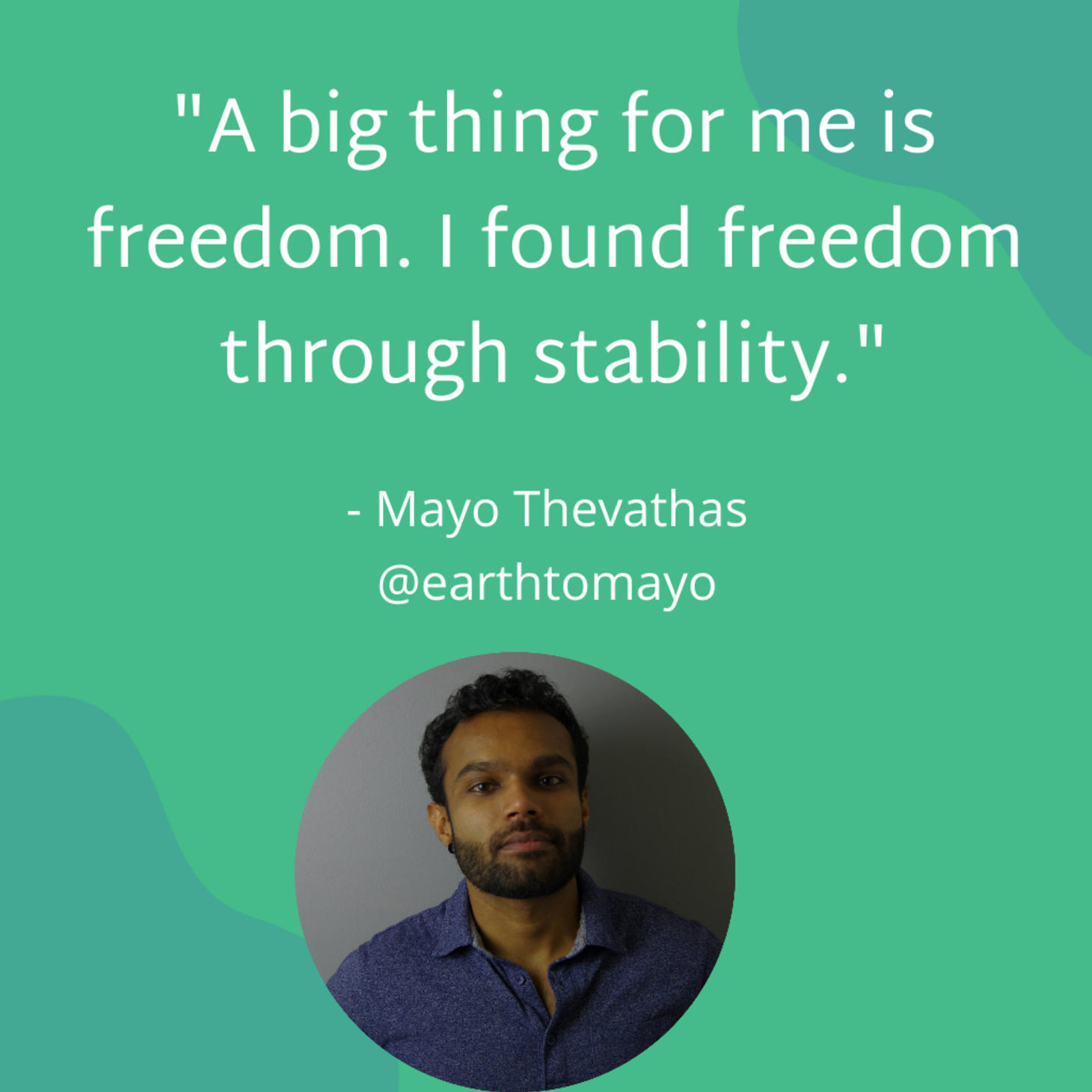
Co-writer and director Mayo Thevathas took a more strategic path, wanting to balance family expectations with his own creative ambitions. For him, freedom started with practicality:
"A big thing for me is freedom. I found freedom through stability. So I would get a job, and move out. That was the first priority."
He became an engineer, ticking all the boxes for his parents, while still nurturing his creative passions on the side.
"I work as an engineer, so I'm very much in the stable path. And on the side, I do a lot of creative stuff. I do photography, videography, and also acting and writing."
For Thevathas, learning was important which he could do in both worlds. His parents see the engineer. His close friends see the creative. The two worlds remain separate. Watching his long-time friend, Raj fully commit to creative work has inspired Thevathas:
"He [Raj] really stuck to it. It gives me the confidence to be like, OK, maybe I can divert from stability and take a few risks now."
While the journey and moving past the messy middle is laden with challenges and disappointments, Raj and Thevathas show us that through small wins and successes, that you can pursue your dream, and be a successful fulfilled creative. It gets easier when you find other people who support you unconditionally and you decide to do more of what you want to do.
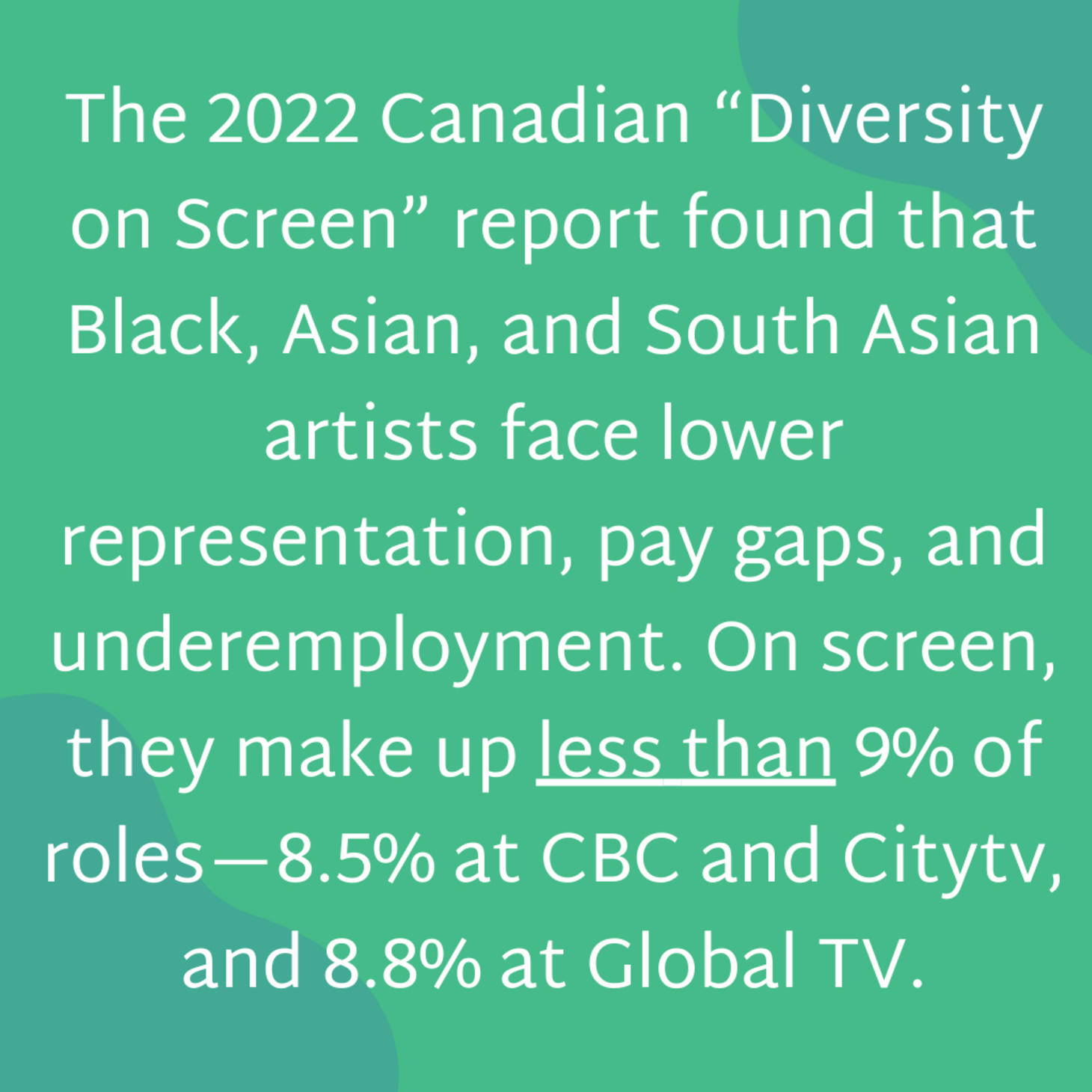
Creative Industry Still Shuts Out Diverse Young Talent
Parental Doubts About Creative Careers: If your creative dreams have ever been dismissed by a parent, you’re not alone. A 2024 study by Netflix and the UK’s National Youth Theatre found that nearly three out of four young people (ages 16-25) in creative fields say their parents think they’re wasting their education. Among working-class families, 89% said they wouldn’t want their kids to pursue a creative path due to concerns about stability, pay, and predictability.
Systemic Barriers in the Arts for Racialized Youth: But even as more young people push for creative careers, the arts still have barriers, especially for racialized creatives. The 2022 Canadian “Diversity on Screen” report found that Black, Asian, and South Asian artists face lower representation, pay gaps, and underemployment. On screen, they make up less than 9% of roles—8.5% at CBC and Citytv, and 8.8% at Global TV. The report calls for real change: more safe, inclusive spaces, targeted funding for racialized creators, and support to help companies scale up instead of hustling project to project.
For many young people of colour, the creative path is a lonely and difficult one due to lack of support from both the industry and family.
COMMUNITY VOICES 🗣️🎤📣
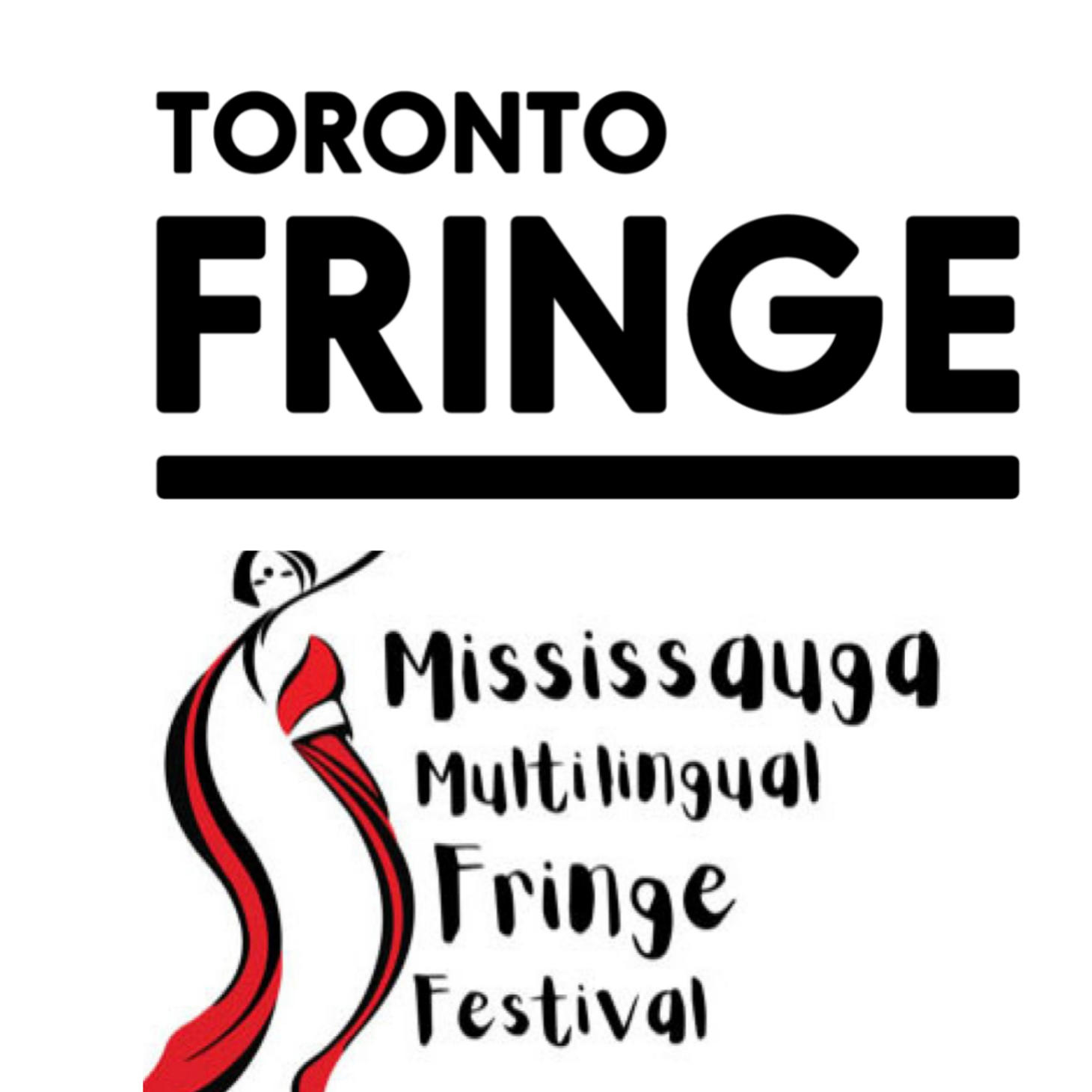
Breaking Barriers: How Local Fringe Festivals Uplift Creatives of Color and Support Their Families
The journeys of South Asian creators like Tharshan Raj, Mayo Thevathas, and the cast of PORNSTAR(i) aren’t isolated stories. They are common across stages for IBPOC (Indigenous, Black and People of color) creatives across Canada. As gatekeepers for emerging and underrepresented voices, both the Toronto Fringe Festival and the Mississauga Fringe Festival are finding ways to make space and support marginalized creatives who face family pressure and other barriers regarding their career choices.
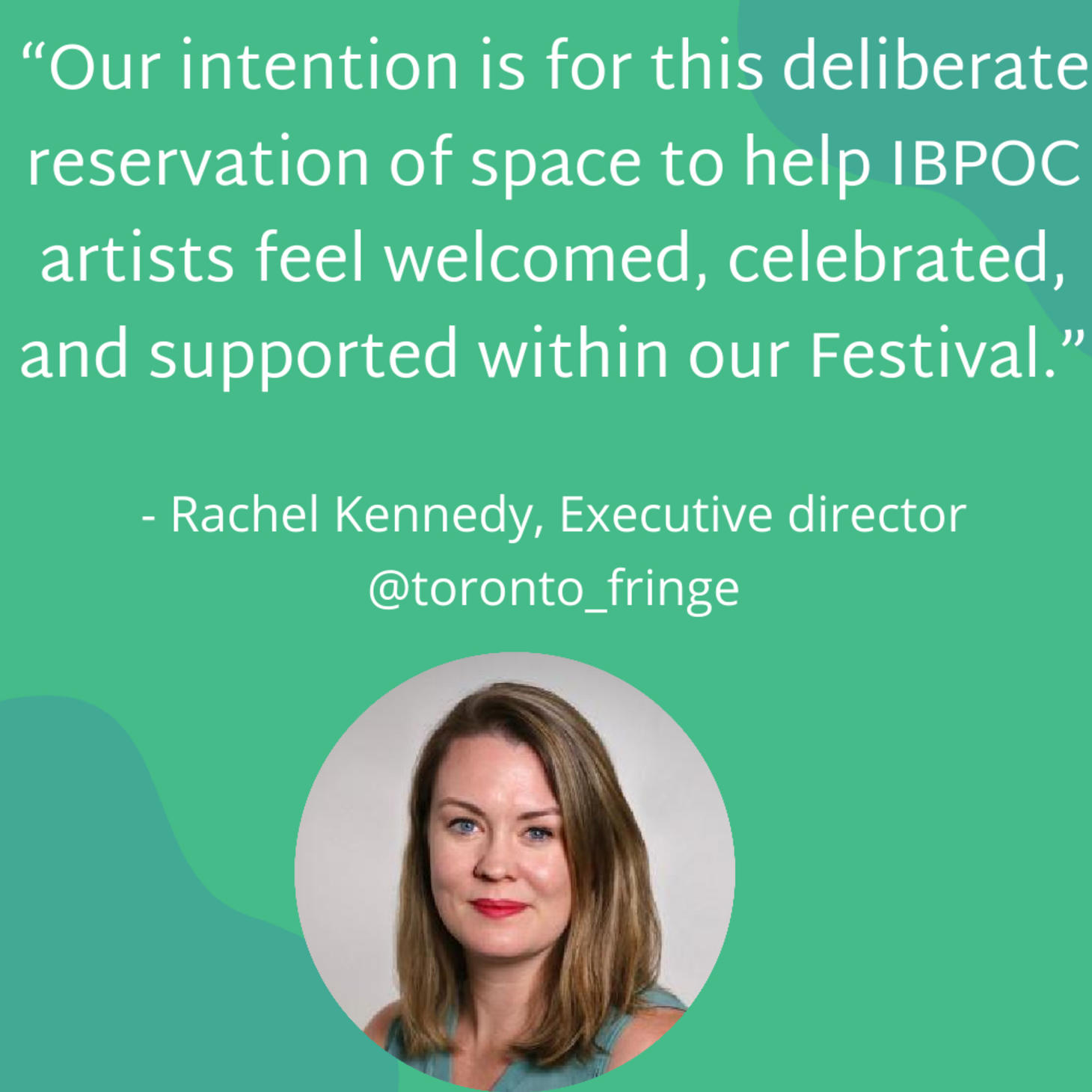
Toronto Fringe Festival: Redefining Opportunity for Racialized Artists
Since the pandemic, the Toronto Fringe Festival has reimagined how IBPOC and immigrant artists find and amplify their voices. Asked about family and community pressures on racialized and underrepresented creatives, Rachel Kennedy, executive director, acknowledges:
”This conversation has been a part of the personal journey of many artists for decades, and can be a barrier for many to join the arts sector. The arts are often seen as a nice-to-have hobby and not as a career that is an essential economic and social powerhouse, that they have proven time and time again to be."
Making Art Accessible, Minimizing Risk: On supporting emerging artists who might face financial or family pressures, Kennedy explains:
”By heavily subsidizing all aspects of the producing experience, the Fringe aims to take a bit of the financial risk out of the equation so that up-front costs are minimized. We hope that this means artists don't need to lean on their family for financial support in order to create their art."
Inclusive Programming: On how the Toronto Fringe is inclusive to creators of color, Kennedy says:
”Our two-phase lottery system guarantees that a minimum of 50% of our main festival performance slots are drawn from IBPOC-identifying applications every year. Our intention is for this deliberate reservation of space to help IBPOC artists feel welcomed, celebrated, and supported within our Festival."
The Toronto Fringe publishes their policy on anti-racism, access and equity on their website.
On advice to parents who worry when their kids choose a creative path, Kennedy offers reassurance:
"I'm a new parent myself and I totally understand how the thought of your child making any life decision can be scary... but a decision that values your child's voice, that helps them find community, and that teaches others to empathize with experiences outside of their own... that sounds like exactly what we should want for our children."
Celebrating Success: Reflecting on what gives her hope for the future, Kennedy says:
”We are so proud of the artists who have come through Toronto Fringe with now-iconic Canadian stories like Kim's Convenience and 'da Kink in my Hair, and I hope that these can inspire parents to believe in their children's talents."
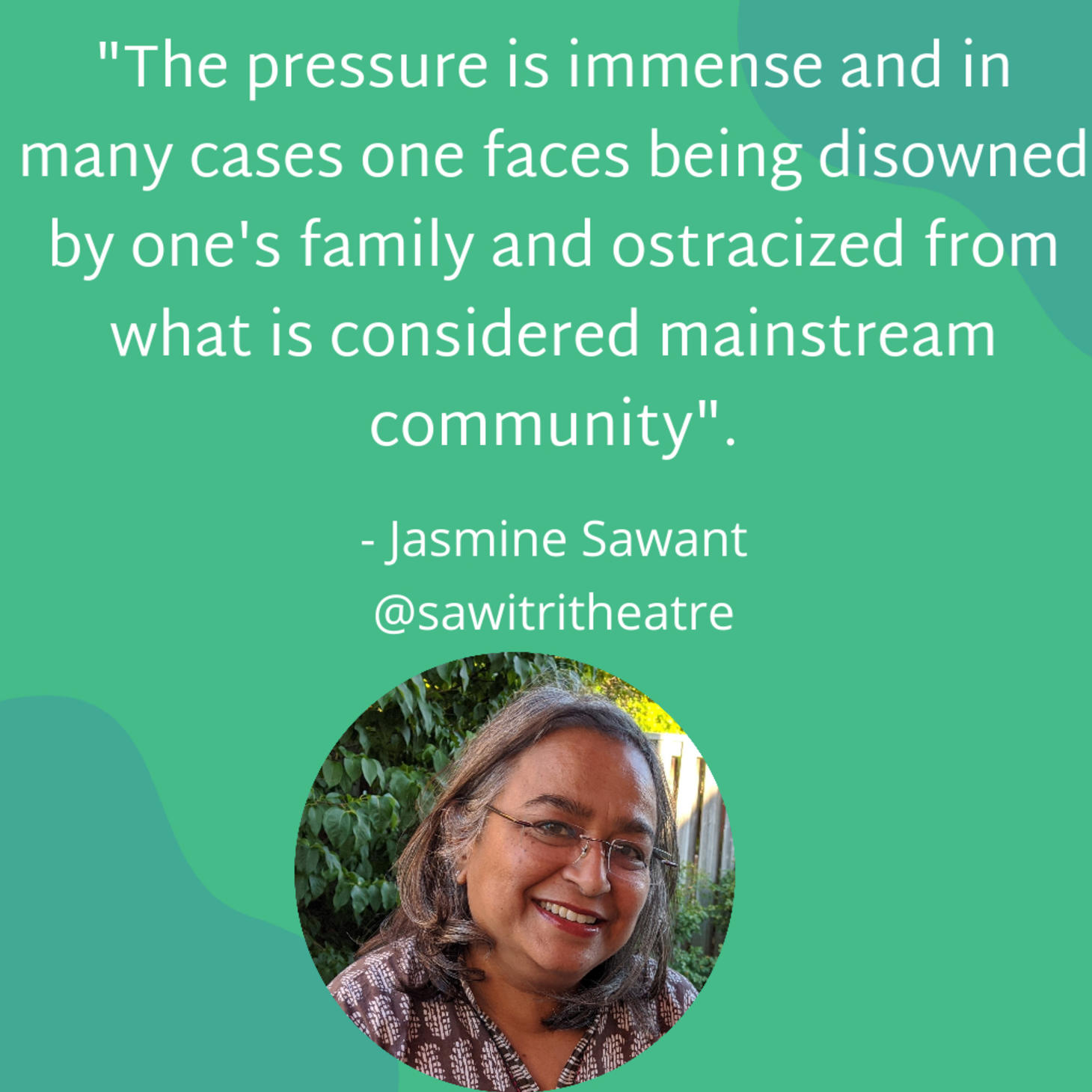
The Mississauga Fringe Festival: Mentorship Amid Pressure
Jasmine Sawant, founder of SAWITRI Theatre Group and also involved with the Mississauga Fringe Festival, has seen the struggle first hand among racialized and South Asian creatives up close. She explains,
"It's a deeply pervasive narrative in many communities… the deep divide between individual aspirations and parental expectations is fraught with tension. The pressure is immense and in many cases one faces being disowned by one's family and ostracized from what is considered mainstream community within a certain cultural context."
Personalized Mentorship and Navigating Two Worlds: In response to the challenges, organizations like SAWITRI, a Mississauga-based South Asian theatre group, focus on personalized mentorship. Sawant says,
"For those who come to us and share their challenges, we sit with them and try to find a way forward, where they can learn to navigate two worlds—parallel professions. It’s an approach aimed at helping artists hold onto both family and creative dreams."
Advice for Immigrant Parents: Sawant's advice to worried immigrant parents:
"Please give them [your children] some time and they will find their own level, just as water always does."
Signs of Change: Emerging Hope: Asked what gives her hope that family pressures on career choices in the arts is changing, Sawant points to progress with younger artists.
“I am beginning to see more young emerging talent who have found ways to support themselves through full-time careers in the arts or learnt to deftly balance two careers. The parental mind set is gradually changing. Perhaps they are more willing to listen, or perhaps they are inspired by the success stories they get to know about through social media and other channels. The change is here. It is slow, but it is growing.”
The Takeaway: Belonging, Breaking Barriers, and New Opportunities
Through intentional programming and support, both the Mississauga and Toronto Fringe Festivals show that immigrant and IBPOC artists belong. Each performance is a win for those who believe and overcome barriers. This breaks old barriers and opens new opportunities for the current and next generation.
EVENTS 📅
🎭 Toronto: Native Earth Performing Arts presents its new season at Aki Studio in Toronto, highlighted by the 38th annual Weesageechak Begins to Dance Festival running November 21–30, 2025. This festival features new works and works-in-development by Indigenous creators from across Turtle Island and beyond, with each night’s double bill exploring the theme of "Complexities and Curiosities." Individual event tickets, such as $15 for select performances. Source: https://nativeearth.ca/current-season
🎥 Toronto: The Regent Park Film Festival (RPFF) 2025 runs from November 27 to 30, offering four days of free films, workshops, artist talks, and community events in Toronto. The festival presents 43 films that highlight acts of care and stories from marginalized communities, and is recognized as the city’s longest-running free film festival. For details on programming and tickets, all events are free and accessible to all. Source: https://rpff.ca/2025/
🎬 Mississauga: The Mosaic International South Asian Film Festival (MISAFF) runs from November 24 to 30, celebrating its 11th year with films from across the global subcontinent, Middle East, and Asia. Screenings take place at Mississauga Living Arts Centre (4141 Living Arts Dr) and Noel Ryan Theatre at Mississauga Central Library (309 Burhamthorpe Rd W). Presented by MISAFF, Canada's premier festival for new South Asian and select Middle Eastern cinema, featuring thought-provoking films with filmmaker Q&As and red-carpet premieres.
Film List: Features films from Canada, the U.S., the U.K., India, Pakistan, Bangladesh, Sri Lanka, Nepal, and the Caribbean, with live screenings followed by Q&A sessions and a two-day film symposium focused on series creation. Festival passes and VIP All Access passes available. Source: www.misaff.com
🎬 Oakville: Pop Up Shorts takes place on Wednesday, November 19, 2025, at 5:30 PM EST at the Staples Coworking Studio, 320 North Service Road West, Oakville, ON. This event features an inspiring night of student documentary films celebrating new voices in filmmaking. The is free to attend. Source: https://www.eventbrite.ca/e/pop-up-shorts-tickets-1944138383239
WE ❤️ FEEDBACK 📋
What'd you think of today's issue? 👂
💫 You need to take it up a notch
Spinning Forward is an award-winning, trusted, local, independent media company that informs, engages, and uplifts aspiring content creators of color aged 16 to 34 in the Toronto region. Flavian DeLima (LinkedIn), the founder and publisher, launched Spinning Forward to help level the playing field in the online economy for creators of color.
CONTRIBUTORS
John Tse, Raj Barot, Mary Beth Bellantone, Maris Kwan, Ayesha Mavadia, Anish Sharma, Marcellus Gardiner, Dianabasi James, Malaikah Syed,
If you like this issue, please share it with a few friends. To view all past issues on the Web, go here
If you want to be featured, have a comment or want to suggest a topic or creator, reply to this email or click here or the "Suggest a link" at the bottom of any issue.
For questions, comments or sponsorships, reply to this email or email info at spinningforward dot com.

COMMENT 💬
Greetings,
Winter has arrived in Toronto. According to Harvard Health, getting your flu shot can save lives by reducing serious complications like pneumonia, heart attack, and stroke—especially for older adults.
Growing up in Toronto, and sandwiched between European and South Asian cultures, I often heard the question, “What will people say?” Around our kitchen table, my parents—like many South Asian parents—offered lots of advice about school, careers, and marriage.
Today's topic—why being a South Asian creator is hard—is important because family and community expectations can make it difficult for young people to follow their dreams, especially when they choose a less traditional path. Many feel torn between fitting in and being themselves. In this issue, you’ll hear from two Sri Lankan Canadian creators, Tharshan Raj and Mayo Thevathas, about their journeys and struggles. We’ll also highlight how support from the Toronto Fringe Festival and the Mississauga Fringe Festival is opening new doors for diverse creative voices.
Reading Time: 10 minutes
Flavian DeLima
Publisher & Editor, Spinning Forward